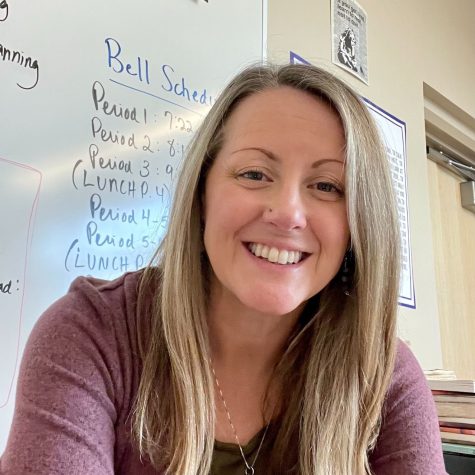At the moment, in some parts of the country, teachers are being asked to refrain from teaching certain books that appear on the AP Literature curriculum. These directions are coming from their administration, the school committee, and state legislation – and books are being removed from classrooms often without feedback from teachers and students.
We are fortunate that in Massachusetts, and in Worcester specifically, our English classes still include books that are considered “controversial” in other states. More than once this year I have found myself saying to my class, “be sure to think about the fact that students your age, in this country, are not allowed to read this book.”
I don’t think the books I taught this year in AP Literature are super controversial – but they do touch upon complicated issues like racism, sexism, and oppression, just to name a few. Banning books over sensitive topics has been around for a long time, but within the current divisive political atmosphere in our country, banning has been more severe and more prevalent. Sometimes books are banned from being taught in a classroom but teachers may still keep a book on their shelves; however, a good deal of modern banning has included books being banned from the classroom or even fully removed from a school library.
And this is all happening at a precarious time – when literacy in our country is dropping sharply. Here are some startling statistics from the National Literacy Institute:
- On average, 79% of adults nationwide are literate in 2024.
- 21% of adults in the US are illiterate in 2024.
- 54% of adults in the US have a literacy below a 6th grade level.
If we want to increase reading skills, we need books that challenge us, and make us think critically. I like to remind my students that reading takes practice. The more you read, the better you get at it. The more you read challenging books, the more your reading muscle gets flexed. The more books you read, the more you learn about the world.
But if we keep books away from young people, we are adding to a social perception that books aren’t valuable.
And they are! Studies have shown that reading has many benefits. Strong literacy isn’t just an individual thing – a community of readers is a community of critical, empathetic thinkers. We learn to think more deeply and gain analysis practice when we analyze what makes a character who they are, and what plot events an author creates to help us understand a theme. Through reading a book about someone different than us, we get close to their experiences, helping us understand people and their unique perspectives and struggles.
In this vein, we are happy to share several articles from South students reflecting on the value of novels they read this past year, both on their own and in their English classes. They do a wonderful job of showing the effect of books on our minds, and on our hearts, and why it is important to continue to provide opportunities for all of us to be readers.







